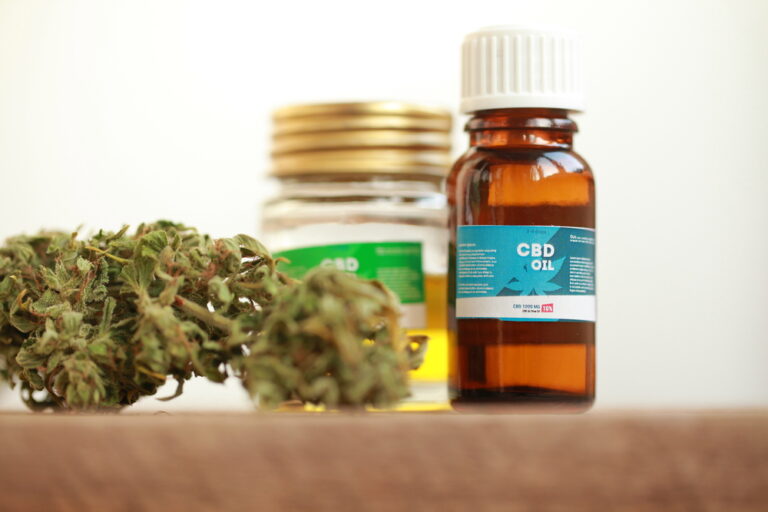The CBD industry is one of the fastest growing industries you will find. Dispensaries are popping up everywhere as are online retailers.
But what about shipping CBD oil? Is this legal?
Can online retailers really ship CBD oil across the country?
The short answer is yes. At the federal level, it is legal to ship CBD oil across the country, but some individual states have their own laws, making it a bit more complicated.
Be sure to check out our Ultimate Guide to Selling CBD Products Online.
What is CBD oil?
CBD oil is a substance made from cannabis that has been touted for its many health benefits. CBD is a substance that has been touted as having many medical benefits. CBD, or cannabidiol, is a cannabis extract that, like other hemp products, does not contain THC and therefore does not have any psychoactive effects.
There are a number of different ways to make CBD oil, but it typically involves extracting the cannabidiol compound from the cannabis plant material and mixing it with a carrier oil like coconut or hemp seed.
It can also be extracted using an alcohol solvent but the process is a lot more complicated and expensive.
CBD oils that have been extracted using other solvents are available to buy, but these types of oils are not legal in all fifty states!
Is shipping CBD oil legal?
What about shipping CBD oil across state lines? Is that legal? The quick answer is yes. If CBD oil is extracted with a solvent like isopropyl alcohol, it can be shipped anywhere in the US.
This is thanks to the 2018 Farm Bill which stated that hemp-derived CBD is allowed at the federal level. It states that licensed companies are allowed to commercially distribute CBD products across state lines.
However, if it has been produced using other solvents or CO2 extraction methods, then each state will have its own laws and regulations regarding whether or not it can be shipped into the state, despite federal regulations.
The 2018 Farm Bill also allowed states to create more strict laws on their own up to and including banning CBD.
Before you start shipping CBD oil across state lines then, you should find out what each state’s laws are to make sure that the product is legal in both the state you are shipping from and the ones you are shipping to.
Most of the regulations center around the amount of THC that can be found in the CBD oil. Some states only allow CBD produced from industrial hemp with a THC content of zero.
Other states allow for marijuana-sourced CBD as long as it stays below the federal law of 0.3% THC.
Currently Idaho, Nebraska, and South Dakota have laws forbidding CBD products.
Alaska, California, Colorado, Maine, Massachusetts, Michigan, Nevado, Oregon, Vermont, and Washington strictly prohibit CBD made from marijuana.
To keep yourself protected, there are a few things you will want to look for from your CBD supplier.
THC Levels Under 0.3%
You can usually find your supplier’s CBD levels right on their product info on the label or on their website. For CBD to be legal its THC levels must stay under 0.3%.
If the supplier uses industrial hemp, there will be zero THC in their CBD. If not, you will want to monitor it make sure they are staying below the legal level.
Is the Supplier Licensed?
If your supplier is not legally licensed to produce CBD, they could be shut down at any time, cutting off your supply and creating some legal problems for you as well.
You will of course face the problem of finding a new supplier in order to keep up with the demand of your customers. More importantly, if they were not hitting legal standards, you can be held accountable for selling a product that was actually illegal.
Using a licensed supplier reduces this risk to almost zero. In order to be licensed, the government has to approve of their production process, facility, and quality controls. If they are approved by the government and later fail to meet the legal standards, you have some legal protection.
Is It Legal To Ship CBD?
You can ship CBD if it falls below the legal THC limits, is being sent to a destination where it is legal, and follows the regulations that the individual shipping carrier has laid out for handling it.
USPS
The USPS requires you to sign a self-certification statement that verifies that you are selling legal CBD and that your supplier uses industrial hemp. The supplier must be licensed by the Department of Agriculture of the state from which you are shipping.
UPS
In order to ship CBD by UPS, you must be able to state where the raw materials were grown, provide an explanation for how they were processed to manufacture the end product, and verify who shipped the product to the supplier and how it was then delivered from the supplier to you.
DHL
In order to ship CBD products through DHL, they must contain less than 0.3% THC on a dry weight basis, the shipper is responsible for complying with all federal, state, and local laws, the shipper must retain records of complying with those laws, and the packaging cannot contain any branding or labels that indicate the contents.
Compliance with these restrictions is not required at the time of shipping but can be requested by DHL at any time.
FedEx
FedEx has a list of hemp-based products that it doesn’t allow including hemp plants, hemp oil, seed oil, and CBD derived from hemp, however some of its language around CBD oil is pretty vague.
Conclusion
To be positioned to take full advantage of the rapidly growing CBD industry, it is important to have an effective and efficient process in place for CBD order fulfillment services. ShipBuddies can be that partner you need to grow and thrive in such a competitive market space.
To learn more, request a price quote today.









